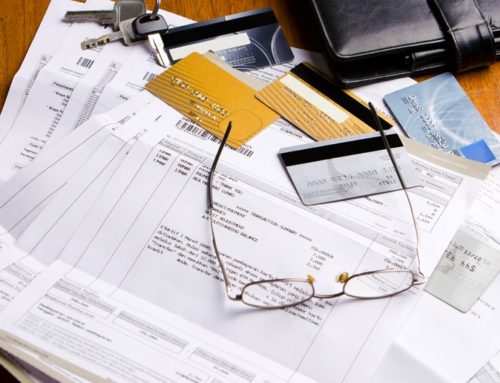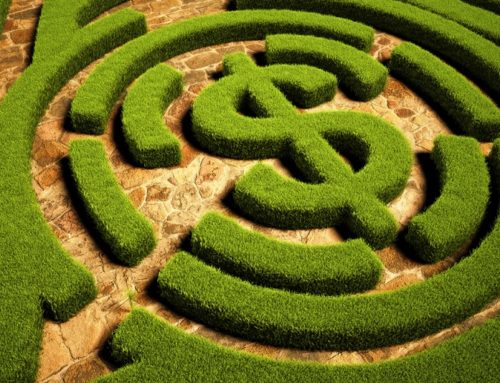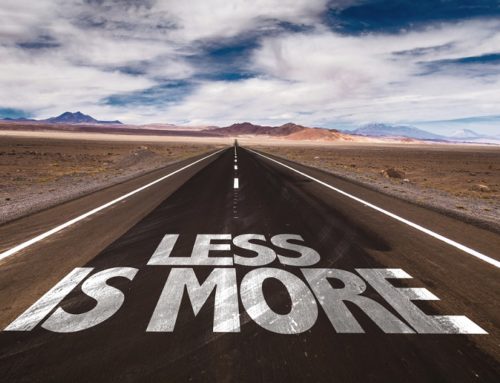Last month, I revealed 4 myths that keep people trapped in debt.
To quickly refresh your memory, here they are:
Myth #1 – The bank approved me so I must afford it
Myth #2 – I don’t need an emergency fund. That’s what my line of credit is for.
Myth #3 – I have to take advantage of the low interest rates
Myth #4 – It only costs $xx per month (or per 2 weeks)
(you can read the full post here)
In this Part 2 post, I want to bust another 4 myths that you should be on the lookout for:
Myth #5 – I’m okay if I make my minimum payments
Truth is the only thing that would be okay when making minimum payments (on time) is your credit score. But you will be in debt for a LONG time.
I believe that credit card companies came up with the minimum payment concept to skyrocket their own profit, at the consumer’s expense. Fortunately, since 2009, the Canadian government requires them to clearly disclose in the statement the number of years it would take to pay off the credit card balance when only minimum payments are made.
For a $2000 balance on a credit card charging 18% and a minimum monthly payment of $40, it would take 24 years to pay it off. And you will pay an outrageous $4,396 of interest!
Strategy: Never charge anything to your credit card, unless you are 100% certain that you will be able to pay it off in full at the end of the month. The day you stop paying the full balance is the day you trap yourself in the vicious cycle of credit card debt!
Myth #6 – Having debt is normal
Truth is if everyone around you is jumping off the cliff, it doesn’t mean you should too. Similarly, if everyone around you is drowning in debt, it doesn’t necessarily make it right. Having consumer debt has become a normal lifestyle in this day and age and being debt-free is abnormal. As Dave Ramsey would say “Being broke is normal. Be Weird!”.
Strategy: Making sacrifices today by not following the crowd will make you the real winner in the long-run. The payoff to living a “payment-free” life is certainly well worth it.
Myth #7 – Everyone else is buying stuff so I should too
Truth is you shouldn’t try to keep up with the Joneses, because the Joneses are broke but you just don’t know it! Seeing your neighbor with a luxury car in the driveway, heading to yet another vacation is no reason to believe that they actually have the means to afford it. Most probably, they are living beyond their means and they’re financing their lifestyle using their home line of credit.
In addition, keeping up with the Joneses used to be feasible to a certain extent, when “the Joneses” were your close friends and your next-door neighbors. In this age of social media where your 500 Facebook friends and your 400 Instagram followers are publicly flaunting pictures of their latest acquisitions and holidays, it has become economically unfeasible to keep up with the “digital Joneses”.
Strategy: Remind yourself of the basic concept of needs vs wants, and avoid comparing your life and “stuff” to others. If you want to buy a certain item or go on holidays, check with your budget first and see if it’s truly feasible.
Myth #8 – But I work so hard, I deserve it
Truth is because you work so hard, what you truly and fully deserve is peace of mind and financial control.
But here’s what happens most of the time:
You work very hard, you start thinking “I deserve a vacation after all my hard work”
You look at your bank account but you can’t see how you can possibly pay for it so you just charge it to your line of credit or your credit card and decide to worry about it later
You go on holidays and you relax for 7 or 14 days
You come back home and you are stressed for the next few years because your credit card/line of credit balance doesn’t seem to go down no matter what you do.
Did you really get to relax in this case?
Strategy: You deserve all the treats and all the holidays, if and only if, you can pay for them with money you have saved.

In conclusion, credit has become so readily available to us. And because of its easy access, it is making us less resourceful and less creative in the way we choose to spend money. To fulfill our endless material desires, our solution is to rely on the plastic we have in our wallets, rather than counting on money we actually own today.
If there is one concept that you can apply to start moving towards a debt-free life it’s “Save Now, Buy Later” . (I believe in it so much that I bought the domain savenowbuylater.com !)






